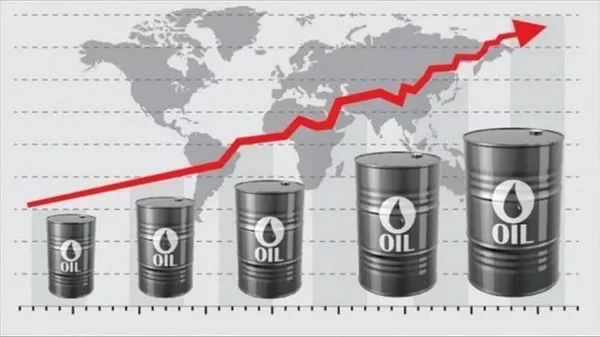Crude oil futures are contracts that allow investors to speculate on the future price of crude oil. These futures contracts are traded on various exchanges, providing individuals with an opportunity to profit from fluctuations in oil prices. However, buying crude oil futures requires careful consideration and understanding of the market dynamics. In this comprehensive guide, we will outline the step-by-step process of buying crude oil futures and provide essential tips for successful trading.
1. Understand the Basics of Crude Oil Futures
Before diving into the world of crude oil futures, it’s crucial to grasp the fundamental concepts. Familiarize yourself with the factors that influence oil prices, such as supply and demand dynamics, geopolitical events, economic indicators, and weather patterns. Gain insights into the different crude oil grades, including West Texas Intermediate (WTI) and Brent crude.
2. Choose a Suitable Brokerage or Platform
To trade crude oil futures, you need to select a reputable brokerage or online platform that offers access to the futures market. Look for brokers that are regulated and have a strong track record. Consider factors like commission rates, ease of use, customer service, available research tools, and the platform’s reliability.
3. Complete the Account Opening Process
Once you’ve chosen a suitable brokerage, you’ll need to open an account. This typically involves completing an application form, providing necessary personal information, and verifying your identity. Some brokers may require additional documentation or have specific eligibility criteria, so ensure you meet all requirements.
4. Educate Yourself on Trading Strategies
Developing a robust trading strategy is essential for success in crude oil futures trading. Familiarize yourself with technical analysis tools, such as charts, indicators, and patterns, to identify potential entry and exit points. Additionally, learn about fundamental analysis to gauge the impact of news and economic data on oil prices. Consider practicing your strategies and refining your skills through paper trading or demo accounts before risking real capital.
5. Conduct Thorough Market Research
Before entering any trade, it’s crucial to conduct thorough market research. Stay updated on global oil industry news, geopolitical developments, OPEC decisions, and macroeconomic factors. Analyze historical price data and study charts to identify trends and patterns. Utilize research reports, news platforms, and reputable financial websites to gather relevant information.
6. Determine Your Risk Tolerance and Set Objectives
Establishing a clear risk management plan is vital when buying crude oil futures. Determine the amount of capital you are willing to risk on each trade, set stop-loss orders to limit potential losses, and decide on profit targets to secure gains. Assess your risk tolerance level and align your trading approach accordingly.
7. Place Trades and Monitor Positions
Once you’ve conducted thorough research and established your trading plan, it’s time to place trades. Access your brokerage platform, select the appropriate crude oil futures contract, specify the desired quantity, and choose either a market order or a limit order. Keep a close eye on your positions, monitor market developments, and be prepared to adjust your trading strategy if necessary.
8. Manage Your Positions and Use Risk Mitigation Techniques
As your positions unfold, it’s essential to actively manage them. Regularly review your trades, apply trailing stop-loss orders to protect profits, and consider scaling in or out of positions as per market conditions. Avoid overtrading and stick to your predefined risk management rules. Employing risk mitigation techniques, such as diversification and proper position sizing, can help protect your overall portfolio.
9. Continuously Learn and Adapt
The world of crude oil futures trading is dynamic and ever-changing. Continuously invest in your knowledge and stay informed about market developments. Learn from your successes and failures, keep a trading journal to track your performance, and adapt your strategies as market conditions evolve. Engage with other traders, attend webinars or seminars, and follow industry experts to expand your understanding of the market.
10. Seek Professional Advice if Needed
If you are new to crude oil futures trading or require additional guidance, consider seeking professional advice. An experienced commodity broker or financial advisor can provide personalized insights, help refine your trading strategy, and assist in navigating complex market situations.
Conclusion:
In conclusion, buying crude oil futures requires a comprehensive understanding of the market, diligent research, and a disciplined trading approach. By following these steps and continually honing your skills, you can enhance your chances of success in the exciting world of crude oil futures trading. Remember to exercise caution, manage your risk effectively, and embrace a continuous learning mindset to thrive in this dynamic market.

